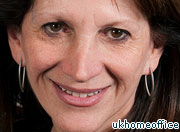Public bodies should be free to encourage equality of opportunity and not be burdened by a requirement to impose equality of outcomes on society, The Christian Institute has warned.
The caution was made in response to the Government’s consultation on the contentious Public Sector Equality Duty (PSED).
This duty, which is part of the Equality Act, requires all public bodies to advance ‘equality’ but the Institute has warned that existing equality laws have often been used as a sword to attack Christians rather than a shield to protect them.
Expose
The Institute also cautioned that the PSED will expose schools to challenges from campaign groups looking to promote their own agenda, and cautioned against a proposal to hand even more power to the Equality and Human Rights Commission.
As it stands the ‘equality duty’ will require public bodies to publish equality outcome objectives “as part of their normal business planning process”.
But the Institute has warned that such proposals will simply act as a distraction for overstretched organisations, and go far beyond what is actually required by the Equality Act.
Advance
The Institute’s response said: “The Equality Act states that one aspect of the general duty is to ‘advance equality of opportunity’. Yet equality outcomes are very different to equality of opportunity, and lead to radically different approaches.
“Equality outcome approaches stifle initiative, level down achievement and can be hijacked by special interest groups.”
The Christian Institute also warned that Christians have often been penalised by existing equality laws.
The response cites a number of examples, including the time a nurse was suspended for offering to pray for a patient, where Christians have been marginalised for their faith.
Oppressive
It warns: “In the current climate, the PSED, in both its general and specific duties, is bound to generate more ridiculous, and in some cases oppressive action by public bodies – unless the Government firmly sets itself against such a culture.”
The report also cautioned that the PSED will “inevitably” be used by campaign groups as a tool for trying to force their agenda upon others.
It added: “Whatever the Government may say, attempts will be made to use the PSED in a campaigning fashion, and will be taken by some as a licence to promote homosexuality.”
EHRC
The Equality and Human Rights Commission (EHRC) is set to be the body charged with providing more detail on the PSED “practical requirements”.
However, the Home Secretary has previously accused the Commission of wasting taxpayers’ money and one newspaper commentator has accused it of promoting ‘loony left’ policies.
The Commission has previously said that making girls wear skirts as part of a school uniform policy is “potentially unlawful”, claiming it may discriminate against girls who believe they are boys.
Vegans
The equality watchdog has also claimed that discrimination laws should treat veganism as a belief, and that vegans should be afforded the same protection as religious groups.
Last month a Guardian newspaper commentator warned that a fair society would encourage equality of opportunity for all instead of enforcing equality of outcomes.
Julian Glover’s comments came as the Equality and Human Rights Commission (EHRC) released a report on inequality in Britain.
Opportunity
Mr Glover questioned the EHRC’s obsession with equality of outcomes, and warned that the EHRC’s “definition of a fair society is one that champions the constant reduction of unequal outcomes.”
Mr Glover added: “I think the EHRC has a wrongheaded idea of fairness. It measures the extent to which people’s lives are different, and then calculates the action needed to make them more the same. The assumption is that equality is what we all want.”
Mr Glover went on to explain that a valid alternative to enforcing equal outcomes, would be to provide everyone with equality of opportunity which would then allow them to realise their potential.
Unfair
He said: “This overlooks the possibility that the actions needed to compel equality may be seen as unfair by those who do not benefit from them.
“An equally valid idea of a fair society may be one in which people are given the space and the right to strive for inequality: advantage achieved by their own efforts.”
He added: “The corollary of rejecting equality as a goal, and placing greater responsibility on individuals, must be to increase opportunity by reducing unfair advantage.”

